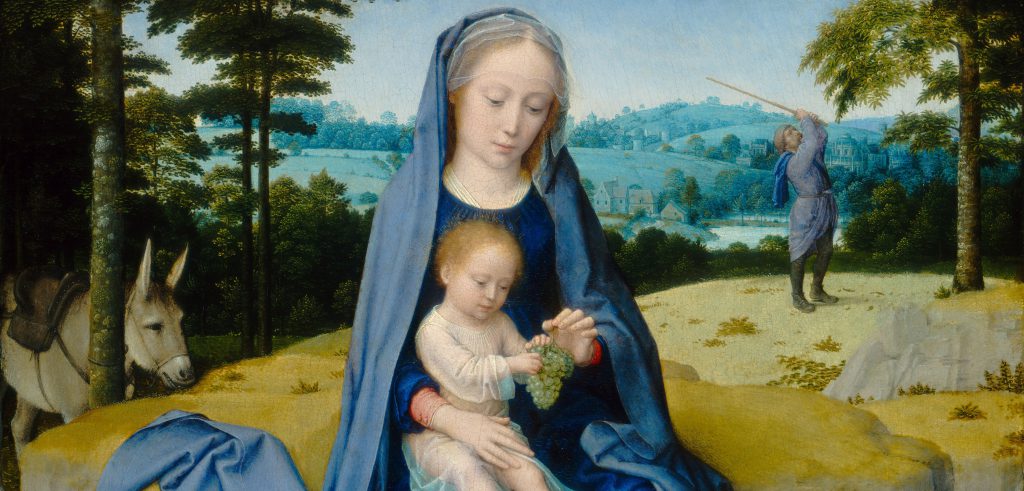Non-Catholics who reject our Lady’s perpetual virginity use Matthew 1:24-25. In ordinary language, the phrase “knew her not until she had borne a son” would imply that she and Joseph had conjugal union after the birth of her Son. The Bible of the Virgin’s time (the Old Testament) sometimes uses the word “until” (and the word “to”) in a different sense. Here are some examples.
The raven that Noah set free “went forth and did not return until the waters were dried up upon the earth” (Gn 8:7, RSV). In fact, the raven never came back. In somewhat the same sense the Old Testament occasionally uses the preposition “to.” We read in 2 Samuel 6:23 that “Michal the daughter of Saul had no children to the day of her death” (RSV). Would your non-Catholic informant imply this means Michal had children after her death? Or what about Moses’ grave. Deuteronomy 34:6 reports that no one knows where Moses was buried “to this day.” Again, this does not imply someone would know the location after the time when the sacred writer wrote. The use of “until” and “to” only means an event did not occur up to a certain point.
You may read in 1 Maccabees the use of the word “before” with a similar meaning. After victory in battle, the Maccabean forces “went up to Mount Zion with gladness and joy, and offered burnt offerings, because not one of them had fallen before they returned in safety” (5:54, RSV). This clearly does not mean they were slain after they returned.
St. Luke, therefore, is not reporting or even implying that the Virgin and Joseph lived as husband and wife after she had borne her Son. St. Luke’s account of the Visitation makes this even clearer. When the angel Gabriel told the Blessed Virgin she was to bear a son, she was astonished. She asked, literally, “how can this be since I do know not man?” (1:34). The Old Testament commonly speaks of sexual union as a man and woman “knowing” one another. (Among other instances, Genesis 4:1 [RSV] records, “Now Adam knew Eve his wife, and she conceived and bore Cain….”)
Ordinarily, a young woman engaged at this time, soon to be married, would not be surprised at being told she would give birth in the future. Why was Mary obviously amazed? Because she had vowed perpetual virginity within the bounds of her approaching marriage. This has always been the Church’s understanding of her consternation. Non-Catholics sometimes argue that a virginal marriage (known technically as a “Josephite” marriage) is “unnatural.” That may be true, but it’s no argument against there being such a marriage. It was “unnatural” for a virgin to bear a Son. And it was certainly “unnatural” for a couple to raise a child who was God in the flesh.
Another argument used by non-Catholics is taken from St. Luke’s reference to Our Lord as the Virgin’s “first-born son” (2:7). Among the Israelites, a woman’s first son was always called “first-born,” even though she later may have had no more sons. In the Old Testament the term “first-born son” primarily connoted the bearer of special privileges and rights in the family. An appendix to the Catholic version of the RSV explains that the term does not necessarily mean the first of several. “The word is used even in modern times without necessarily implying subsequent births.”
Finally, in Matthew 12:46 and Mark 6:3, we read about “brothers” and “sisters” of Jesus. Non-Catholics assume this refers to children of the Virgin and St. Joseph. But the Greek and Hebrew words for “brother” and “sister” are ambiguous terms. Sometimes they refer to an ally (as in Dt 2:37). At other times “brother” means a friend (see 2 Sm 1:26). Christ’s Church has always taught that that the meaning of “brother” or “sister” as it pertains to Jesus refers to relatives or friends, never blood brother or blood sister.

